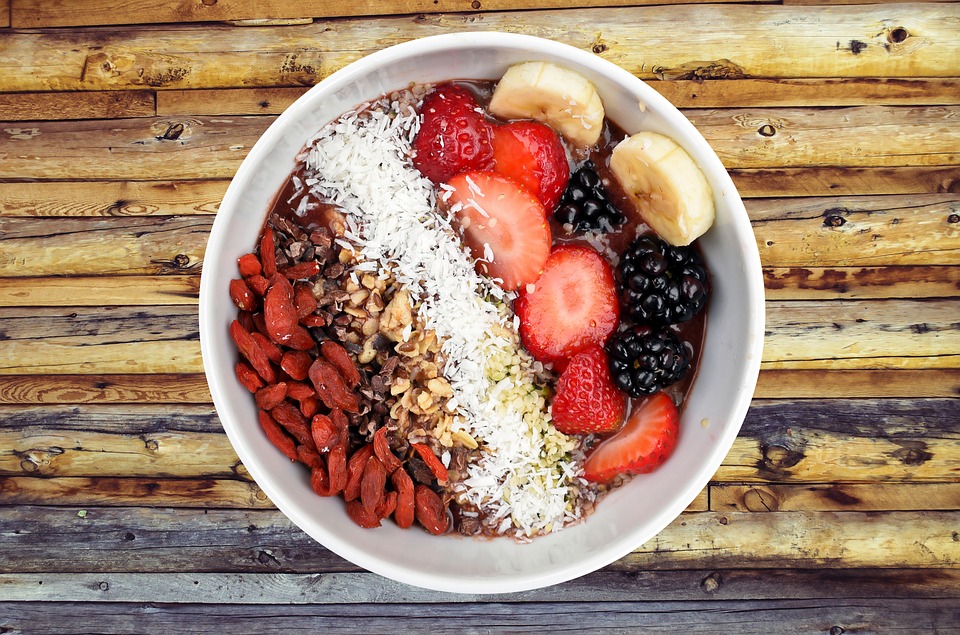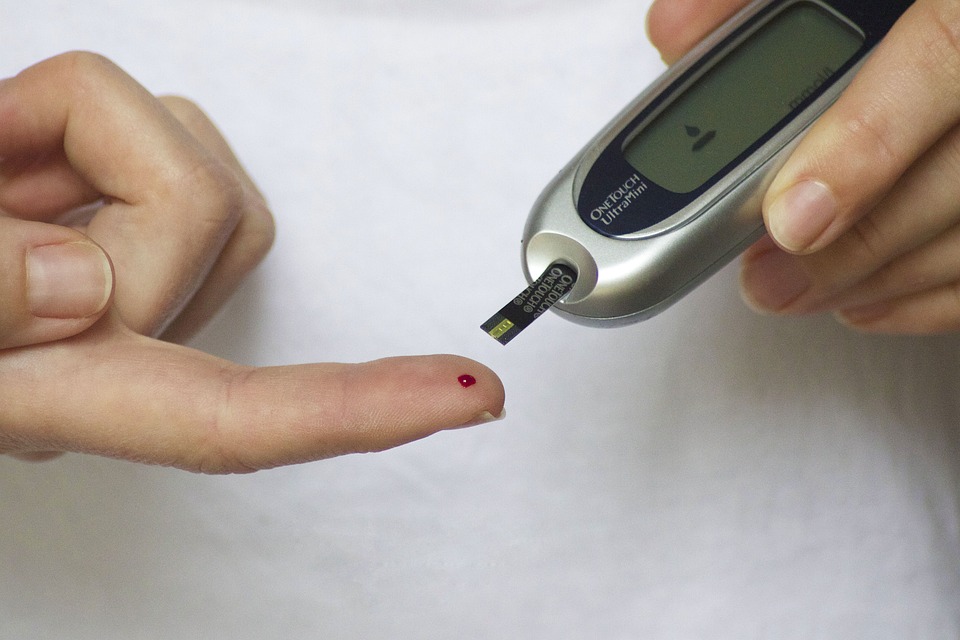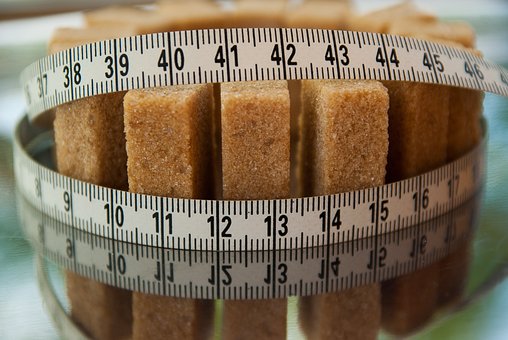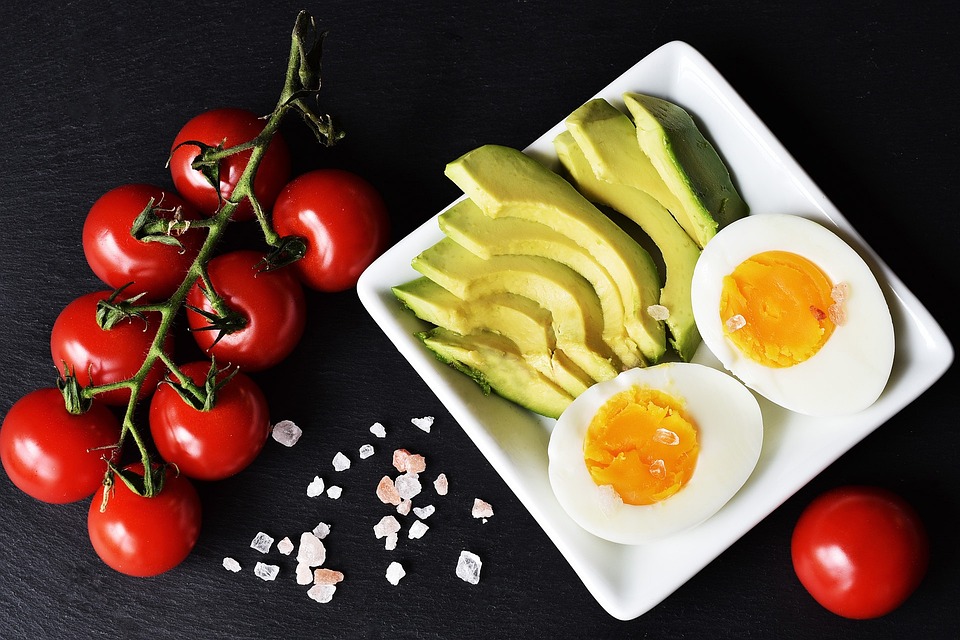
Glycogen is a large polysaccharide with many branches. Polysaccharides are carbohydrates made up of simple sugars. Glycogen is a polysaccharide that is made up of many molecules of the monosaccharide glucose.
The carbohydrates that your body doesn’t need for immediate energy are stored as glycogen, mainly in your muscles and liver. The average person has about 600 grams of glycogen when their stores are full. That number is only an estimate. There are many factors that affect how much fat you burn, including the amount of muscle you have, your diet, your fitness level, and your exercise habits.
If glycogen is available, your muscles will prefer to use it as fuel. Intensive or prolonged physical work breaks down glycogen particles. This allows glucose molecules to be used, which are then turned into ATP molecules needed for muscle contractions. ATP is the main energy source for almost all cell processes.
Every gram of glycogen can hold onto up to 3 grams of water. Water found inside muscles helps improve both appearance and performance. It doesn’t make you look bloated or puffy. You can lose or gain a lot of weight, depending on how much water is in your muscles, how active you are, and what you eat. An athlete who can store 800 grams of muscle glycogen has 2.4 kilograms of body weight in the form of glycogen and water.
Muscle Glycogen
Although glycogen makes up a small percentage of muscle weight, it is a significant percentage of liver weight. The amount of glycogen you store in your muscles is much more significant than the amount of glycogen you store in your liver.
The average adult can store around 50-60% of muscle glycogen. If you are doing intense or extended physical activity, it will use up the glycogen stores in your muscles, but it will not go below 10% of the maximum amount of glycogen that your muscles can store.
The more fit you are and the more muscle mass you have, the greater capacity your muscles have to store glycogen. Compared to a sedentary person, an elite-level endurance athlete has a lot more glycogen stored in their body. If you are mostly sedentary, you don’t need to store much glycogen in your muscles. Your body adapts your stores according to your needs. Your body makes sure you can store high-quality fuel for your muscles if they need it. A high-level cross-country skier might be able to store twice as much muscle glycogen as the average person. There hasn’t been much research on people who strength train, but the same principles probably apply.
This means that when you work out at a moderate or intense level, your muscles are using glycogen as their main energy source. The muscles in your body use stored glycogen as fuel, converting it into ATP molecules in order to contract. The more intensely you work out, the more motor units associated with fast muscle fibers you activate. Low-intensity exercise relies more on fatty acids as fuel. However, once you ramp up the intensity, fat isn’t good enough. Carbohydrates are essential for your muscles to perform at their best. Muscle glycogen and blood glucose help to maintain energy levels and keep your muscles working properly.
This means that if you train hard, your body will use glycogen and blood sugar to power your workout. The fatty acids in your muscles and your blood are not enough.
Carbohydrates, Glycogen, and Performance
Scientists have documented the importance of carbohydrates for more than 100 years. By observing marathon runners, researchers during the 1920s were able to see an association between blood glucose levels and fatigue. A study found that runners who ate carbohydrates before a race performed better than those who didn’t. Sugar-based candy consumed during the marathon helped to prevent fatigue.
Glycogen was discovered way back in 1858. Swedish scientists did not come to the conclusion that muscle glycogen levels directly influence physical performance until 100 years had passed.
A diet that is high in carbohydrates is an important part of an athlete’s ability to perform well and recover quickly after training sessions. Even though more recent research has shown that you can train both hard and effectively with a low-carb diet, or even without carbs entirely, you would have to look hard to find elite-level athletes who don’t rely on carbohydrates to perform and recover.
Glycogen Use During Exercise
During low-intensity workouts, you don’t use many glycogen reserves. You don’t need such a powerful fuel to perform at that intensity. As long as you keep fueling yourself with fat, you’ll have more than enough to last a long time. However, when you work as hard as you can, your body will use glycogen as fuel instead of fat. Your glycogen stores can release up to 20 times more glucose during high-intensity exercise.
If you are working out with high intensity or for a long time, you will use up the glycogen stored in your muscles. If this occurs, your muscle cells won’t be able to create ATP as quickly. After a certain point, you become too tired to keep up the intensity of your workout and have to lighten up. If you start to feel exhausted during a strenuous workout, you may need to stop and rest. Your body’s glycogen stores dictate how long you can sustain a high level of activity.
Replenishing Your Glycogen Stores
During exercise, you drain your glycogen stores. If you want to have enough energy to keep training, you need to eat foods high in carbohydrates.
After you work out, your body is more sensitive to carbohydrates. They will absorb all the carbohydrates you give them and store them as glycogen to perform better next workout.
Now is the best time for your insulin sensitivity, your muscle cells’ ability to absorb glucose is improved, and your levels of the enzyme glycogen synthase are high. Eating or drinking carbs now will cause your body to release insulin and create glycogen. Your muscle cells are open and able to receive sugar, so you can give them a lot of glycogen in a short time.
The Best Carbs to Load Your Muscles With Glycogen
Which carbohydrate sources are the best?
The ones you like the best and find easiest to eat enough of. This is only necessary for high-level endurance athletes who need to carefully select their carbohydrate sources for efficient glycogen synthesis.
The most important dietary factors in relation to muscle growth are the total amount of carbs you eat and your energy intake, as long as you’re not depleting the same muscles more often than every 24 hours. The two things that determine if you will replenish your muscle glycogen are the type and amount of carbs you eat.
In other words, fructose is not as good as glucose or starchy carbs for storing energy in muscles. This means that the liver gets to metabolize the fructose before any other part of the body. This text is only relevant if you have a short amount of time to fill your muscles with glycogen. You need to ensure that as many grams of carbohydrates as possible end up as muscle glycogen when you want to put on muscle mass. After you work out, you need to replenish the glycogen you lost in your liver. However, your liver does not need a specific type of glycogen. This means that it does not require fructose and can instead use glucose and starchy carbs.
If you want to load your muscles with glycogen quickly, it’s a good idea to choose carbohydrate sources that are based on glucose and starch, rather than sugar. Unless you are an elite athlete working to restore glycogen levels for peak performance, you don’t need to worry about different carbohydrate sources. Otherwise, it doesn’t matter.
However, new evidence indicates that fat doesn’t seem to do that If you’ve been told to avoid eating fat after a workout, new evidence suggests that you may not need to worry about it as much as previously thought. Fat doesn’t seem to slow down the process of gastric emptying or carbohydrate and protein uptake, which is necessary for glycogen synthesis. There seems to be no difference in post-workout fat burn whether or not you eat before working out. This means you don’t have to eat boring, dry rice to replenish your glycogen stores. You can drench it in a sauce safely if you like it to be fatty.
A similar amount of carbohydrates in both solid and liquid form will equally replenish your glycogen reserves. If you’re in a hurry, drinking a carbohydrate drink is often easier than eating a pasta meal. You’re not going to get much benefit from drinking sugary drinks if you’re not in a hurry.
Who Should Be Concerned About Muscle Glycogen?
If you are a serious strength athlete, not having enough muscle glycogen can be a big problem. It can affect your exercise performance and how quickly you recover afterward. Most people will find that they can maintain optimal muscle glycogen levels by eating a balanced diet that includes enough calories from fats, proteins, and carbohydrates.
Beginners
Muscle glycogen is not a high concern for most beginners when discussing exercise performance and/or dietary modifications. If you’re a beginner or intermediate lifter/athlete, you should focus on establishing a balanced diet and getting enough calories. You should also make sure you’re staying hydrated, getting enough sleep, and training effectively.
If someone just starting out can develop good eating habits to get enough calories from a healthy mix of proteins, fats, and carbohydrates, they will usually have enough glycogen in their muscles.
Most beginners train at lower volumes and frequencies, which may have a limited impact on muscle glycogen depletion. Inadequate caloric consumption, poor food quality, irregular or insufficient sleep, stress, adverse responses to training, and/or lack of motivation may be causing beginners’ low levels of energy, stalled performance, or poor recovery — but this does not necessarily reflect glycogen levels.
Strength and Power Athletes
If athletes consume enough calories and carbohydrates, they will not have many problems with using up and replenishing glycogen. There are many possible causes of fatigue, including poor recovery, lack of sleep, stress, and inability to cope with training stressors. Resting and modifying your exercise volume and intensity is often a good way to fix what seems like chronic fatigue.
Serious athletes who train for strength and power often have to worry about depleting their muscle glycogen stores if they don’t consume enough calories, or if their goal is to lose weight for a weight class. If you are working out a lot and find that you are not recovering well or your performance is declining, you may want to increase your intake of carbohydrates.
Fitness and CrossFit Competitors
A lot of high-intensity training programs rely on carbohydrates to help power the muscles. If you consume enough calories from fats, proteins, and carbohydrates throughout the day, you will often have enough muscle glycogen, just like a most beginner and intermediate lifters.
Some athletes training multiple times a day, for extended periods, and/or at high volumes and frequencies may find that strategies to replenish glycogen improve their recovery and performance during subsequent training sessions.
Endurance Athletes
Athletes need the energy to fuel their endurance, and this energy can come from either aerobic or anaerobic processes. VT is the point at which carbohydrate utilization as a fuel source dramatically increases. The VT is found at around 75-80% of VO2 max.
Aerobic processes that oxidize fats are the primary source of energy for endurance athletes and recreational runners training at or below the VT. Carbohydrates are not typically an issue for most endurance athletes/runners who eat sufficient calories and are training less than 60 minutes per session.
There are different guidelines for how many carbohydrates to consume for more advanced endurance athletes who are training for half-marathons, marathons, or ultras. Carbohydrate consumption at intervals during these prolonged training sessions can improve performance during prolonged exercise. Athletes who eat fast-digesting carbohydrates before a workout can help themselves by minimizing the depletion of muscle glycogen. This is because carbohydrates can be used for immediate fuel during training, and preserve the stores of muscle glycogen.
For more serious endurance athletes who train at or above the aerobic threshold, carbohydrate ingestion can be a key nutritional strategy to increase exercise performance. Endurance athletes who train at high intensity levels can often benefit from replenishing their muscle glycogen stores regularly during periods of high-volume training and when they are doing more intense workouts (% of VO2 max).
Bodybuilders
Active bodybuilders who frequently diet and train with high-intensity levels may improve their recovery by focusing on their pre-, intra-, and post-training nutrition. This would include optimizing their carbohydrate intake and replenishment.
General Fitness and Health
The typical fitness enthusiast generally has enough muscle glycogen to be adequate for their needs. Most people who exercise regularly will not have problems with their performance due to a lack of muscle glycogen if they are consuming enough calories from a balanced diet.
Performance decrements in this population typically arise from factors such as poor nutrition and training, such as poor sleep, stress, dehydration, poor food quality, lack of motivation, and malnutrition (over and/or under-eating). It is key that nutritional and training habits are established early on for basic fitness and overall well-being.














